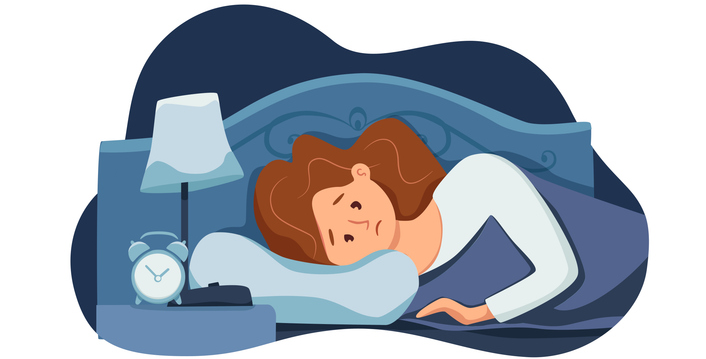Insomnia

If you’ve ever thought, ‘Why can’t I just fall asleep?’—you’re in the right place.
Let me explain insomnia and its significant impacts, along with some encouraging information about treatment.
Insomnia is more than occasional sleep troubles - it's a persistent difficulty with falling asleep, staying asleep, or waking too early. To be considered chronic insomnia, these difficulties typically need to last at least 3 months and cause problems in your daily functioning. There is also, The Chemistry of Sleep: What Your Brain Needs to Rest.
Insomnia Sleep Disorder
The numbers are quite striking - about 70 million Americans suffer from chronic sleep problems, with roughly 33 million experiencing chronic insomnia. That means about 10% of adults are dealing with chronic insomnia, while 30-35% experience brief symptoms.
 The Centers for Disease Control and Prevention has age-specific sleep recommendations for how much sleep people should get each night. Understanding your sleep needs throughout different life stages — and troubleshooting the problems that arise — can clear the way for a better night’s rest.
The Centers for Disease Control and Prevention has age-specific sleep recommendations for how much sleep people should get each night. Understanding your sleep needs throughout different life stages — and troubleshooting the problems that arise — can clear the way for a better night’s rest.
CDC Gov. - Sleep Difficulties in Adults: United States, 2020
US Center for Disease and Control and Prevention  The American Academy of Sleep Medicine and the Sleep Research Society recommend adults sleep at least 7 hours a night (1); over one-quarter of adults do not meet this recommendation (2). Signs of good sleep quality include taking less time to fall asleep and not waking up often or for long periods (3).
The American Academy of Sleep Medicine and the Sleep Research Society recommend adults sleep at least 7 hours a night (1); over one-quarter of adults do not meet this recommendation (2). Signs of good sleep quality include taking less time to fall asleep and not waking up often or for long periods (3).
Symptoms of lack of sleep can ripple through every aspect of your life:
🔹Daytime fatigue and mental fog
🔹Difficulty concentrating and memory problems
🔹Increased irritability and mood changes
🔹Reduced work performance
🔹Strained relationships and social withdrawal
🔹Weakened immune system
🔹Changes in appetite and metabolism
The challenging part is that insomnia often becomes self-perpetuating - worry about sleep makes it harder to sleep, which increases worry, creating a frustrating cycle.
The good news is that insomnia is very treatable.
Cognitive Behavioral Therapy for Insomnia (CBT-I) is the gold standard treatment, recommended by major medical organizations as the first-line treatment for chronic insomnia.
Research shows that 70-80% of people who complete CBT-I experience significant, lasting improvements in their sleep.
🔹Optimize Your Sleep Schedule - Create consistent bedtimes and wake times to support your body’s natural rhythm.
🔹Strengthen Your Natural Sleep Drive - Build a strong sleep-wake cycle that promotes deeper, more restorative sleep.
🔹Reduce Sleep-Related Anxiety - Use techniques to calm your mind and ease the stress of sleepless nights.
🔹Break the Cycle of Insomnia and Worry - Address the thoughts and behaviors that keep you awake.
🔹Develop Lasting Healthy Sleep Habits - Adopt practical strategies that support better sleep for life.
Get started on your journey to better sleep? 🌟💤
Unlike sleep medications, CBT-I addresses the root causes of insomnia.
CBT-I helps you develop skills that continue benefiting your sleep long after treatment ends. Think of it like learning to ride a bike - it takes practice at first, but once mastered, the skills become natural and automatic.
